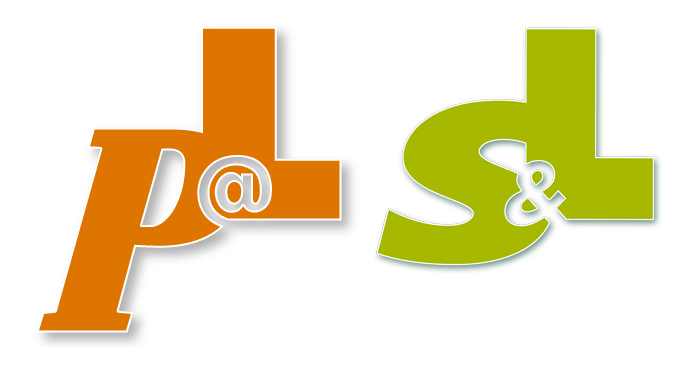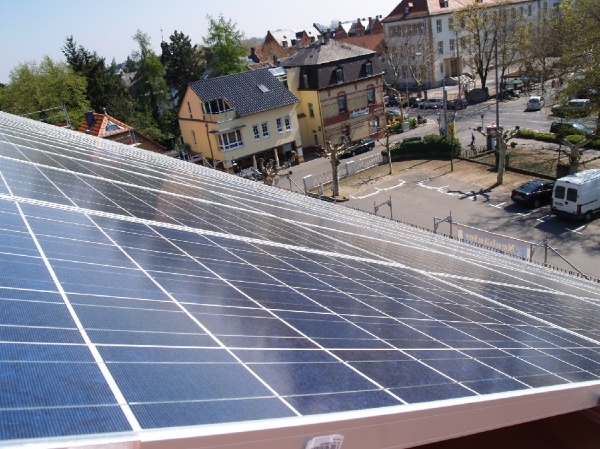Inspect First - Then Refurbish
In recent years, the number of artificial pitches used to practise sports has continued to increase, largely replacing old surfaces such as ...


YOUR FORUM FOR PLAY, SPORTS UND LEISURE AREAS

The “Turngemeinde 1861 Mainz-Gonsenheim (TGM)” is a showpiece-example of a climate-friendly sports club. In good weather the photo-voltaic plant belonging to the club produces 52,000 kWh of electricity each year, corresponding to the annual consumption of 15 family homes. Around 41 tons of climate-polluting carbon dioxide per year can be saved in this way.
After around 10 years the investment will be amortised and after that, all profits will enter the club funds. “With the savings on heating energy and electricity the club can save costs and make a contribution towards climate protection. This is a win-win situation for both sport and environment. I can recommend all clubs who have the possibility, to make use of it”, said TGM president Andreas Maurer. “The money saved all goes towards our sport.”
At the official inauguration of the sport club’s new photo-voltaic unit, Deputy Major Wolfgang Oepen spoke of an, “important impulse for Gonsenheim” and expressed his hope that many other associations would follow the TGM lead.
Dr. Udo Ungeheuer, Chairman of the Management Board of Schott AG, manufacturer of the solar modules, emphasised the performance of the solar cells. The “particularly modern solar modules” also generate electricity under cloudy skies. This is the largest advantage compared to the first-generation solar cells. The idea to create a solar roof was already discussed in 1996 but at that time the critical voices were still in the majority. In October 2009 the TGM committee then made the decision to purchase the photo-voltaic plant. With an optimal south-facing alignment, the two roofs of the large sport hall and the new gymnasium provide optimum conditions for a rapid amortisation of the installation.
Schott boss Udo Ungeheuer - himself president of the sport club TSV Schott - wished the TGM members a sunny future. Dr. Jürgen Steiner, press representative of TSV Schott, seconded the “sunny future” for the club and added: “Solar energy offers sport clubs a very good way to help the environment and at the same time, to earn money. This is made possible by the German ‘Erneuerbare Energien Gesetz, EEG’ (renewable energy law) which states that owners of a solar plant receive an attractive commission for every kilowatt hour of electricity that they produce and feed into the public electricity grid. How much exactly depends on the size of the plant and the point in time at which it is taken into operation. Currently, for a plant up to 30 kW in size, compensation is exactly 28.74 Cent per kilowatt hour, and is legally guaranteed for 20 years. During this period the solar plant ‘pays for itself’.
The TSV Schott also shows how a project like this can work. The TSV is the largest amateur and hobby sport club in Mainz, Germany and one of the largest in the whole Rheinland-Pfalz region. It is supported from a financial and organisational point of view by the Schott AG, but membership is open to the public at large. On the roof of the small grandstand belonging to the club’s own football pitch, 189 square metres of photovoltaic modules sparkle in the sun. The 25-kW-plant has been in operation since December 2009 and produces around 22,000 kilowatt hours (kWh) of ecologically compatible electricity per year. In comparison, a four-person household consumes around 3,500 kWh each year. The modules are made by the corporate subsidiary Schott Solar, which is specialised in the manufacture of long-lasting high-quality modules and has more than 50 years’ experience in solar technology. Long-lasting is the decisive key word: As a solar plant of this kind is financed by its own performance, it makes absolute sense to install high-quality modules which fulfil their nominal performance for many years. In a performance test carried out by the German Fraunhofer Institute, Schott Solar Modules were attested to provide more than 90% of their original performance values even after 25 years of use. The solar plant on the TSV Schott grandstand roof is financed and operated by the company rio Energie GmbH, a subsidiary of the public works of the city of Mainz, Stadtwerke Mainz. The TSV Schott receives a rent for allowing rio Energie to make use of the roof area. A business model that could become very popular. The Stadtwerke Mainz and Schott Solar are looking together for further roof areas where they can install solar plants - even well outside the city boundaries of Mainz. A wide variety of cooperation models are feasible; the two companies have already implemented together with the local savings bank the first Mainz citizens’ solar energy plant where all citizens can purchase a participation. Sports clubs interested in a cooperating in a similar project should contact Schott Solar AG.”
Sport and the environment
Over the last seven years, the annual energy costs for a club have risen by around 38 percent from 8.000 to an average of 13.000 Euro. This makes clear the necessity for energy saving measures in the club facilities. According to a short study carried out by the German Institute for applied material flow management, (Instituts für angewandtes Stoffstrommanagement), on average, every club could save around 4.5000 Euro each year on energy costs - funds which could be invested directly in sport. “Since 2006 nearly 200 clubs in Rheinland-Pfalz have had their energy and environmental management checked, comprehensively and free of charge in an on-site eco-check,” stated the president of the regional sport union of Rheinland-Pfalz, Karin Augustin. “The objective is to increase the awareness of members and employees of clubs to the topics of climate and environmental protection.”
The Turngemeinde e.V. Mainz-Gonsenheim intends to go a step further in order to not only save money through environmentally-friendly technology and energy-saving behaviour, but also to go with the times. Based on this installation and the resulting leading by example, the TGM Gonsenheim was chosen in November 2010 to be the venue for the press conference of the regional sport association and Rheinland-Pfalz ministry of the environment. In the form of a cooperation, it is intended to initiate different measures to enable clubs to be more environmentally aware in future.
“The signing of a cooperation contract by LSB – Rheinland-Pfalz President Karin Augustin and enivornmental minister Margit Conrad on 24.11.2010 in Mainz - Gonsenheim is worthy of note for more than one reason, and is also an important step for organised sport in the Rheinland-Pfalz region. The new cooperation contract not only brings the future form of sport in the region into line with the objectives of environmental and nature protection, the areas of protection of the climate and resources, nature protection and environmental communication and education towards sustainable development. This contract also includes the early inclusion of the regional sport association of Rheinland-Pfalz in cases of legal regulation where sporting activities are involved. Climate and resource-relevant activities of the sport associations in Rheinland-Pfalz, such as ecological modernisation and economic operation of sports facilities, will continue to be supported generously by the ministry of the environment. In this concrete case this means financial safeguarding of economic and solar checks for the club with its own solar plant (around 2,900 of a total of 6,328) for at least three years, plus the creation of informative documentation and an environmental competition with a financial volume of total approx. 380,000 Euro. This is all independent of the construction and renovation support provided by the ministry of the interior and the ministry for sport of the region Rheinland-Pfalz. A lot can be done with this money. The creative cooperation work between the regional ministries on different topics and in different fields, especially outside the “secure” budgets, is not only essential for sport in Rheinland-Pfalz in times of tight finances. In return, sport provides a solid and exceptionally important social contribution,” stated Harald Petry from the regional sport association of Rheinland Pfalz.
TM
Photos: Turngemeinde e.V. Mainz-Gonsenheim